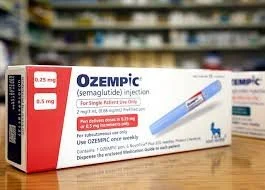GLP-1 Weight Loss Drugs Can Affect your Oral Health
As GLP-1 weight loss drugs like Ozempic, Wegovy and Zepbound become more widely used, many adverse side effects have become known. Most people have heard about Ozempic face from long term use. That happens because the drugs also work on the fat in your face that belongs there and a sunken, wrinkled appearance may develop.
The side effects that relate to your oral health are all related to a decrease in saliva production. It isn’t clear why this happens. Another factor leading to decreased saliva production is lessened water intake because these drugs also decrease your thirst as well as hunger. Healthy and adequate saliva is one of the most important parameters to maintain your oral health.
Saliva helps flush away bacteria not just from your teeth but from your gums and tongue and in general keeps your soft tissues such as your cheeks and lips comfortable and functional. Dry mouths often are uncomfortable and tissues gets easily irritated or scratched. A dry tongue will accumulate bacterial in all of the little crevices leading to bad breath and general irritation.
Saliva also has critical buffers in it that help neutralize the acids in your mouth from your diet as well as the acids formed from the bacteria in your mouth digesting carbohydrates and then producing acids as waste products. An acidic mouth will erode your enamel leading to cavity formation.
Another common side effect that affects your mouth is vomiting. These drugs slow down the emptying of your stomach which can lead to bloating, nausea and vomiting. Repetitive vomiting can severely damage your teeth. Hydrochloric acid from your stomach will acid wash your teeth and erode the enamel. Quite often this occurs on the tongue side of your front teeth and is not always obvious until it’s too late and the enamel thins so much that the teeth start chipping and looking translucent. Vomiting also dehydrates you. This reduced fluid in your body will also lower your saliva leading to the problems outlined above.
To reduce your risk of damage to your mouth, drinking plenty of water throughout the day will help. In addition, daily flossing and regular brushing including brushing your tongue will help clean the increased bacteria off of your teeth and gums, decreasing your chances of cavities and periodontal disease.
Lastly regular checkups and cleanings are critical to catch any damage early. Your dentist may also want to consider doing fluoride treatments after each cleaning and possibly prescribing a prescription strength fluoride toothpaste or rinse. Fluoride makes your teeth more acid resistant. This is one of the most researched items in all of medicine going back over 80 years despite what some anti fluoridation people claim!
For more information, you can contact Dr. Michael Krochak at
NYC Smile Spa
30 E. 60th St., Rm 1201
New York, NY 10022
(212) 838-2900






